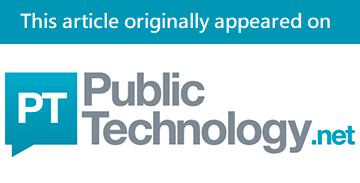An intensive programme of research conducted by the Government Digital Service has found that many civil servants continue to hold “misconceptions” about artificial intelligence.
During a six-month period from late 2023 to early 2024, the digital unit ran a programme of surveys and interviews in which it engaged with 150 officials across more than 20 departments. With the aim of finding out more about “what colleagues need to use AI safely, confidently and effectively, we explored their current behaviour, attitudes, fears and activities”, according to a blog recently published by GDS.
 The online post sets out several key findings from the research. The first of these is that “people have misconceptions of what AI is and what it might achieve”.
The online post sets out several key findings from the research. The first of these is that “people have misconceptions of what AI is and what it might achieve”.
Over the course of the six-month exercise, the study found that “civil servants’ awareness of AI… increased, and people [had] become more familiar with tools like chatbots”.
“However, the way they conceptualise AI has been shaped by the prominence of generative AI tools, with some participants associating AI primarily with generative AI,” the blog adds. “The misconception that AI means large language models and chatbots can make managing stakeholders’ expectations complicated. Generative AI tools are not the solution to every problem and present issues of accuracy, potential bias, and, in some cases, sustainability.”
To help people reach “a realistic understanding of AI, its capabilities, applications and limitations” – and help agencies decide when AI is and is not the right tool for their needs – GDS believes that “sometimes a single example or case study can help demystify AI and change people’s attitude”.
The second major finding of the research is that “the emergence of AI provides government with an opportunity to rethink its approach to governing services”.
GDS reports that such a reimagining comes as “survey respondents showed a good understanding of potential risks of AI”. People’s concerns about the dangers posed by the new technology are similar in both the context of government and more generally in the wider world, and encompass “things like privacy, bias, ethics, concerns around plagiarism, security, and potential for misuse”.
The blog adds: “Civil servants are aware that there are additional complications and responsibilities when using AI in government, due to the nature of the data used and the reach and impact of government services.”
GDS found that, on top of its own regularly updated guidance, many departments have introduced their own discrete governance measures. Teams working on AI-based projects and services thus “acknowledge that they need to regularly be kept informed on new guidance and good practice to build, test and monitor AI solutions”.
“Across government, we are still learning what the impact of AI models is for service governance processes,” GDS says. “With many teams exploring ways to validate, monitor and measure AI services, there’s an opportunity to combine cross-government lessons learned into guidance that would be useful for anyone working in AI.”
Game changer
The final major conclusion of the research concerns how the digital unit could “enable more public servants to make the most of AI”.
Doing so will require GDS – and government more widely – to understand the new and different world created by artificial intelligence.
“AI changes the way we interact with technology, and the way we build digital products,” the blog says. “This change can be scary: it might change how frontline staff deliver their services, what digital and data roles do, or how they collaborate.”
To prosper in light of this change, the blog reiterates the importance of “providing relevant, real examples, and opportunities to experiment with AI”.
“In our research we uncovered a need for relevant examples and opportunities to share knowledge,” GDS adds. “Evolving capability, changes in attitude and more mature AI services are making this possible. Showcasing government use cases can help build awareness and inform good practice.”
The digital team – which is based in the Department for Science, Innovation and Technology – has already used the findings of its research to help inform the creation of cross-government guidance including the Generative AI Framework and the AI Playbook for the UK Government.
The online post – which is attributed to three GDS research and AI specialists: Louise Petre, Johanna Kollmann and Tommaso Spinelli – says there is “work going on to address what we’ve learnt in our user research”.
This will include regular reviews and updates of existing playbooks, while continuing to support education programmes already on offer to government employees keen to find out more about new technology.
“If you are interested in gaining AI skills, you can… take free e-learning courses on Civil Service Learning and access off-the-shelf training on Government Campus via the learning frameworks,” the blog says. “These courses range from short introductions to AI topics to detailed online courses on technical aspects of AI technologies and products.”
Other available resources flagged up by GDS include monthly get-togethers organised by the AI Community of Practice, as well as the repository of records algorithms used by public bodies published via the Algorithmic Transparency Recording Standard hub.